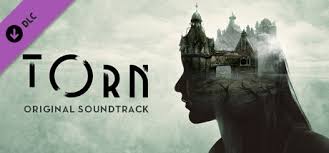TORN
TORN, a massively multiplayer online role-playing game (MMORPG), immerses players in the dark, crime-ridden underbelly of City, a fictional metropolis where cunning and ruthlessness reign supreme. Launched in 2004 by British developer Joe Chedburn, TORN stands as one of the largest text-based RPGs, boasting over 1.5 million registered players and a vibrant community. With its blend of crime simulation, social interaction, and strategic gameplay, offers a unique experience that blends gritty realism with endless possibilities. This article explores the game’s origins, mechanics, appeal, and cultural impact, shedding light on why it remains a cornerstone of online gaming.
Origins and Evolution
TORN emerged from the vision of Joe Chedburn, who, at 16, crafted a game that would become a financial success, reportedly earning $80,000 monthly through premium subscriptions by his early 20s. Inspired by the lawless allure of crime-themed RPGs, TORN launched as a browser-based game in 2004, with its beta phase ending on November 15 of that year. By 2008, it had attracted over a million users, cementing its status as a text-based MMORPG giant. A major overhaul in 2014 introduced the TORN RESPO engine, enhancing performance, while the 2018 Android app release broadened its reach. The Crimes 2.0 update, rolled out in 2023 after nine years of development, revamped the crime system, adding time-based mechanics and rare item opportunities, keeping the game fresh.
Unlike graphical blockbusters, TORN relies on text-based storytelling, proving that compelling gameplay doesn’t need flashy visuals. Its success challenges the notion that graphic-less games can’t compete, drawing players into a world of gang violence, business ventures, and player-driven economies.

Gameplay Mechanics
TORN places players in Torn City, where they start as weak, penniless criminals aiming to dominate through crime, combat, or commerce. The game’s sandbox nature allows players to choose their path: become a drug dealer, a financial kingpin, or a faction leader. Progression hinges on earning experience points (EXP) through crimes, missions, or player-versus-player combat, though the EXP system is unique in hiding progress toward the next level, adding unpredictability.
Core activities include committing over 50 crimes, from petty theft to bombing government buildings, with outcomes influenced by the Nerve mechanic, which limits crime attempts. Players can train stats like Strength, Dexterity, and Speed in gyms, take education courses to boost skills, or work jobs like doctor or lawyer. Factions, akin to guilds, enable cooperative organized crimes and territory wars, while player-run markets and auctions drive a dynamic economy. Items range from chocolate bars to AK-47s, tradable for in-game currency.
Social interaction is central, with players able to marry, trade, or bounty rivals. Casino games like poker and Russian Roulette offer high-stakes thrills, while stock trading and company ownership reward strategic minds. Missions provide narrative depth, and travel to 11 destinations adds variety. Failing a crime might land players in jail, where they can bust out or be bailed by others. Donations (real-money purchases) unlock benefits, though the game remains free-to-play.
Why TORN Captivates
TORN’s appeal lies in its open-ended gameplay and community-driven world. The sandbox RPG format lets players define their goals—whether owning the fanciest property, leading the strongest faction, or amassing wealth. This freedom, coupled with a no-reset policy, ensures characters grow indefinitely, rewarding long-term commitment. The game’s gritty realism, with drugs, violence, and shady NPCs, creates an immersive escape, though its mature themes suit players 15 and older.
The social aspect is a major draw. With forums, chat rooms, and Discord, players form friendships, rivalries, or even in-game marriages. Contests and giveaways foster engagement, while the Torn City Times newspaper delivers updates and stories. However, some players criticize the repetitive text-based missions and grind-heavy progression, noting that success often requires significant time or money. The combat system, described as one-sided due to stat disparities, can frustrate newcomers, and wait timers for actions like travel or training demand patience.
Despite these critiques, TORN’s addictive quality shines through. Players report returning after breaks, hooked by the gameplay loop of crimes, stat-building, and social dynamics. Its accessibility—running smoothly on any browser or device—makes it ideal for quick sessions during busy schedules, unlike graphically intensive games.
Educational and Cognitive Benefits
TORN offers subtle cognitive perks. Resource management in the stock market or auctions mirrors real-world economics, teaching investment strategies. Education courses simulate learning, improving in-game skills like law or computer science. The strategic planning required for crimes or faction wars hones decision-making, while social interactions build communication skills. For younger players, the game introduces basic math through currency management and probability in casino games.
However, TORN’s mature themes and violence make it unsuitable for young children, and its grind-heavy nature may overwhelm casual players. In educational settings, it could spark discussions on ethics or economics, but its crime focus requires careful supervision.
Cultural Impact and Community
TORN boasts a thriving community, with 40,000 daily active players and a Facebook page with over 49,000 likes. Reddit threads and Discord servers buzz with strategy tips, memes, and debates, though some players lament a toxic environment or strict account recovery policies. The game’s no-ad policy and free-to-play model enhance its appeal, though premium features can give paying players an edge, sparking debates about fairness.

TORN has influenced the text-based RPG genre, outlasting many competitors. Its Crimes 2.0 update and regular content updates keep players engaged, while player-run companies and factions create a living world. Posts on X highlight its niche appeal, with some comparing it to canceled projects like the 2001 Black Isle RPG.
Conclusion
TORN is a gritty, immersive text-based MMORPG that thrives on its sandbox freedom, social depth, and crime-driven gameplay. Despite criticisms of repetitive missions and grinding, its community, strategic depth, and accessibility keep players hooked. From mugging rivals to running a criminal empire, TORN offers endless ways to dominate Torn City. For those drawn to role-playing and social strategy, TORN remains a compelling, if unforgiving, virtual underworld.
